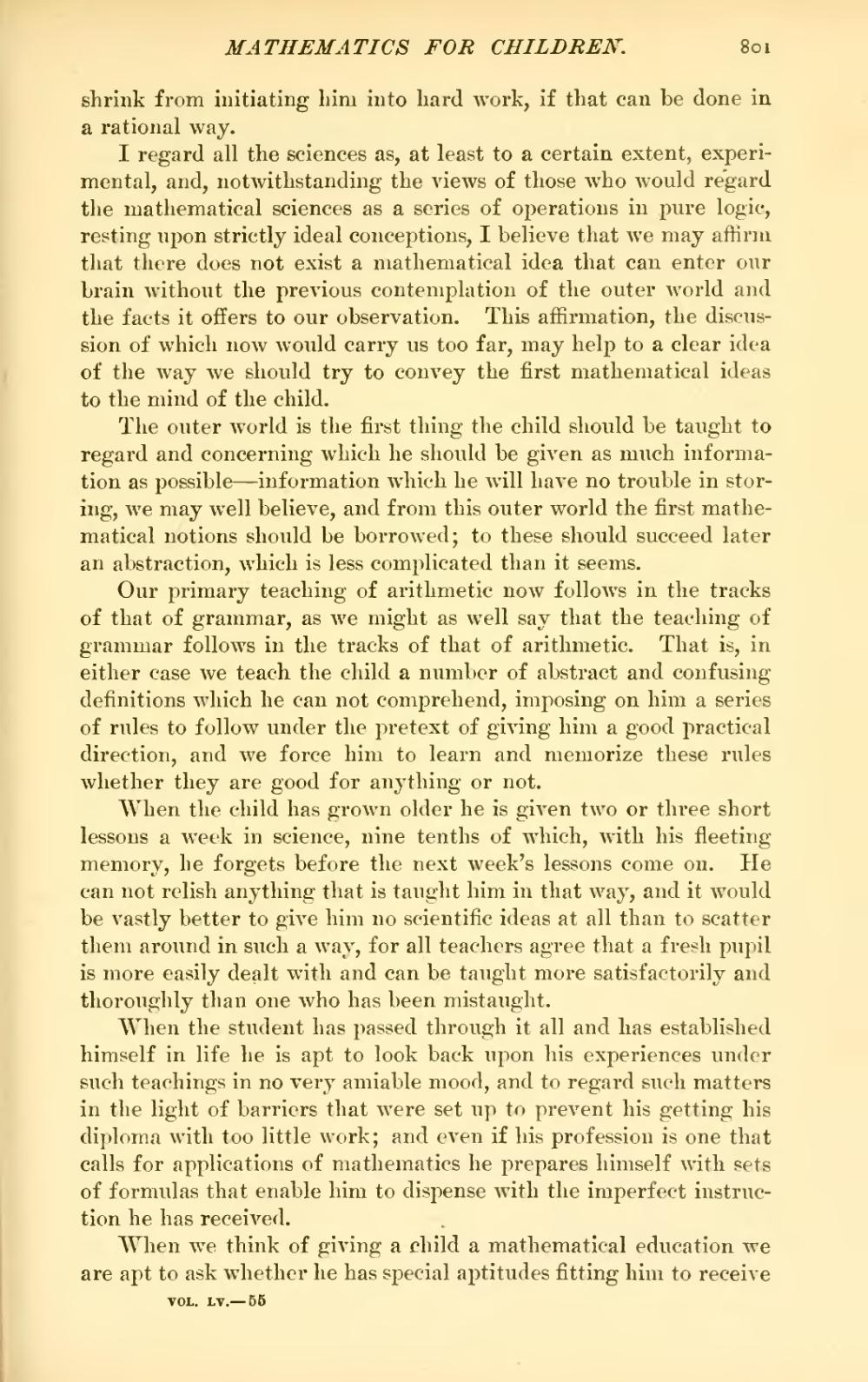shrink from initiating him into hard work, if that can be done in a rational way.
I regard all the sciences as, at least to a certain extent, experimental, and, notwithstanding the views of those who would regard the mathematical sciences as a series of operations in pure logic, resting upon strictly ideal conceptions, I believe that we may affirm that there does not exist a mathematical idea that can enter our brain without the previous contemplation of the outer world and the facts it offers to our observation. This affirmation, the discussion of which now would carry us too far, may help to a clear idea of the way we should try to convey the first mathematical ideas to the mind of the child.
The outer world is the first thing the child should be taught to regard and concerning which he should be given as much information as possible—information which he will have no trouble in storing, we may well believe, and from this outer world the first mathematical notions should be borrowed; to these should succeed later an abstraction, which is less complicated than it seems.
Our primary teaching of arithmetic now follows in the tracks of that of grammar, as we might as well say that the teaching of grammar follows in the tracks of that of arithmetic. That is, in either case we teach the child a number of abstract and confusing definitions which he can not comprehend, imposing on him a series of rules to follow under the pretext of giving him a good practical direction, and we force him to learn and memorize these rules whether they are good for anything or not.
When the child has grown older he is given two or three short lessons a week in science, nine tenths of which, with his fleeting memory, he forgets before the next week's lessons come on. He can not relish anything that is taught him in that way, and it would be vastly better to give him no scientific ideas at all than to scatter them around in such a way, for all teachers agree that a fresh pupil is more easily dealt with and can be taught more satisfactorily and thoroughly than one who has been mistaught.
When the student has passed through it all and has established himself in life he is apt to look back upon his experiences under such teachings in no very amiable mood, and to regard such matters in the light of barriers that were set up to prevent his getting his diploma with too little work; and even if his profession is one that calls for applications of mathematics he prepares himself with sets of formulas that enable him to dispense with the imperfect instruction he has received.
When we think of giving a child a mathematical education we are apt to ask whether he has special aptitudes fitting him to receive

